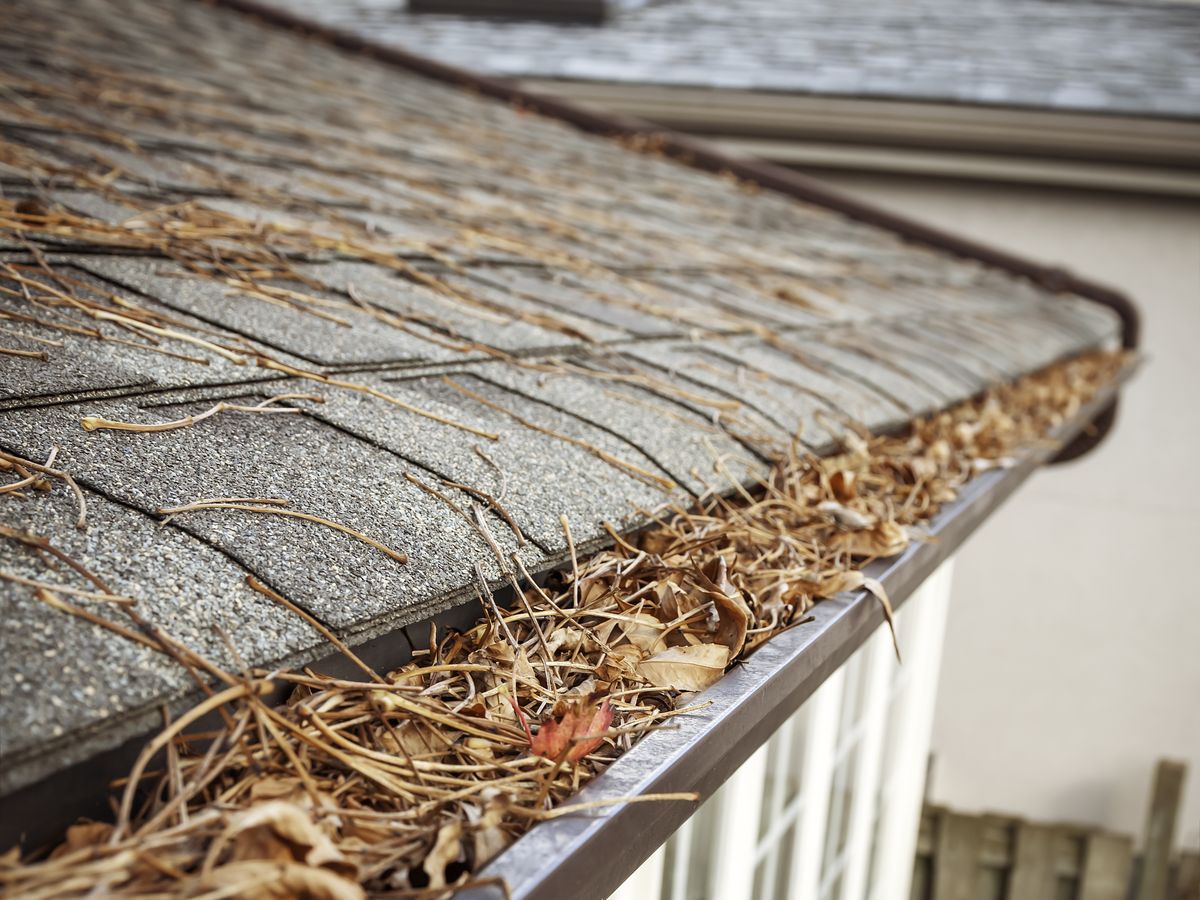

Articles
What Happens If You Don’t Clean Your Gutters
Modified: April 22, 2024
Neglecting gutter cleaning can result in serious consequences. Read our articles to understand what happens if you don't clean your gutters and how to avoid potential damage.
(Many of the links in this article redirect to a specific reviewed product. Your purchase of these products through affiliate links helps to generate commission for Storables.com, at no extra cost. Learn more)
Introduction
Gutters play a crucial role in protecting our homes from water damage. They collect rainwater and direct it away from the roof, walls, and foundation, preventing potential structural issues. However, many homeowners underestimate the importance of cleaning their gutters regularly. Neglecting gutter maintenance can lead to a host of problems that can have costly and even dangerous consequences.
In this article, we will explore the effects of not cleaning your gutters and why it is essential to prioritize this often overlooked home maintenance task. From the accumulation of debris to potential foundation damage and pest infestation, we will delve into the various issues that can arise when gutters are left neglected. So, let’s not waste any more time and dive into the consequences of not cleaning your gutters.
Key Takeaways:
- Neglecting gutter cleaning can lead to costly repairs, pest infestations, and health risks. Regular maintenance prevents water damage, foundation issues, and potential fire hazards, safeguarding your home and family.
- Clogged gutters can cause roof leaks, basement flooding, and mold growth. Prioritize regular cleaning to prevent costly repairs, maintain indoor air quality, and protect your home from structural damage.
Read more: What Happens To Grass If You Dont Cut It
Importance of Cleaning Gutters
Regularly cleaning your gutters is vital to the overall health and maintenance of your home. While it may seem like a tedious task, neglecting gutter cleaning can have significant consequences. Here’s why keeping your gutters clean is so important:
- Proper water drainage: Gutters are designed to collect rainwater and direct it away from your home’s foundation. When gutters are clogged with leaves, twigs, and other debris, water can overflow and accumulate around the foundation. This can lead to water seepage into the basement or crawl space, causing structural damage and the growth of mold and mildew.
- Prevention of roof damage: Clogged gutters can cause water to back up onto the roof, leading to the deterioration of shingles and causing water leaks. Over time, this can result in expensive roof repairs or even the need for a complete roof replacement.
- Prevention of gutter damage: Excessive debris and standing water can put a strain on your gutters, causing them to sag, detach from the roofline, or even collapse. Regular cleaning helps maintain the integrity and longevity of your gutters.
- Elimination of pest habitats: Clogged gutters can become a breeding ground for mosquitoes, birds, rodents, and other pests. These unwanted guests can cause further damage to your home and pose health risks to you and your family.
- Preservation of landscaping: As water overflows from clogged gutters, it can damage your landscaping by eroding soil, flooding flower beds, and destroying plants. By keeping your gutters clean, you can protect your carefully manicured garden and maintain its beauty.
In essence, regular gutter cleaning is essential for the proper functioning of your home’s drainage system. It prevents water damage, protects your roof and foundation, eliminates potential pest infestations, and preserves the aesthetics of your property. Now that we understand the importance of maintaining clean gutters, let’s explore the risks associated with failing to do so.
Accumulation of Debris
One of the primary reasons why gutters should be regularly cleaned is to prevent the accumulation of debris. Over time, gutters can become filled with leaves, twigs, dirt, and other debris. When this debris is left unchecked, it can lead to a range of issues.
Firstly, the accumulation of debris can clog the gutters, obstructing proper water flow. Instead of water being effectively channeled away from your home, it can overflow from the gutters or spill over the edges. This can result in water seeping into the walls, roof, or foundation, leading to water damage and potential structural issues.
Additionally, clogged gutters can create the perfect environment for pests to thrive. Birds, squirrels, mosquitoes, and even rodents can make nests and find refuge in the debris-filled gutters. These unwanted guests can cause further damage to your home, including damaging the gutters themselves or finding their way into your attic or crawl space.
Furthermore, the accumulation of debris in gutters can encourage the growth of plants. Seeds from plants or weeds can easily find their way into the gutters and take root in the accumulated debris. This can lead to the growth of vegetation in your gutters, further impeding proper water flow and exacerbating clogging issues.
Lastly, when gutters are filled with debris, it can become a fire hazard. Dry leaves, twigs, and other flammable materials can easily ignite if exposed to a spark or ember. This can pose a significant risk to your home and the safety of your family.
To mitigate these issues, it is crucial to regularly clean your gutters and remove any accumulated debris. This can be done by using a ladder, gloves, and a garden hose to remove the debris manually or by enlisting the help of a professional gutter cleaning service.
By keeping your gutters free from debris, you can ensure proper water flow, prevent pest infestations, eliminate fire hazards, and maintain the overall integrity of your home. Don’t underestimate the impact that the accumulation of debris in your gutters can have on the well-being and safety of your property.
Damages Caused by Clogged Gutters
Clogged gutters can have severe consequences for your home. When gutters are not properly cleaned and debris is allowed to accumulate, a range of damages can occur. Let’s explore some of the common issues caused by clogged gutters:
- Roof Damage: When water from clogged gutters overflows onto the roof, it can lead to rotting of the roof deck and fascia boards. This can cause structural damage, roof leaks, and ultimately the need for costly repairs or even a complete roof replacement.
- Foundation Damage: Gutters are designed to direct water away from the foundation of your home. However, clogged gutters can cause water to overflow and pool around the foundation. Over time, this can lead to cracked foundations, basement flooding, and damage to the structural integrity of your home, requiring expensive foundation repairs.
- Basement Flooding: Excessive water buildup due to clogged gutters can find its way into your basement or crawl space. This can result in costly water damage, mold growth, and potential damage to your belongings.
- Pest Infestation: Clogged gutters with standing water and decomposing debris are an inviting habitat for pests. Mosquitoes, ants, termites, birds, rodents, and other unwanted critters can find shelter, breed, and potentially invade your home.
- Mold and Mildew Growth: Damp environments caused by water overflow from clogged gutters can promote the growth of mold and mildew. Besides their unsightly appearance and unpleasant odor, mold and mildew can pose health risks, especially for those with allergies or respiratory conditions.
- Fire Hazards: Dry leaves, twigs, and other flammable debris accumulated in clogged gutters can become a fire hazard, particularly in dry and arid climates. A stray ember or spark can ignite the debris and potentially lead to a house fire.
- Overflowing Gutters: When gutters are clogged, water has nowhere to go but over the edge. This can result in water cascading down the sides of your home, potentially causing damage to the exterior walls, windows, and landscaping.
- Damage to Siding and Paint: As water overflows from clogged gutters, it can saturate the siding of your home, causing it to warp, rot, or develop mold and mildew. Additionally, constant water overflow can cause paint to peel or fade, requiring repainting and additional maintenance expenses.
It is evident that neglecting gutter cleaning and allowing them to remain clogged can lead to significant damages and costly repairs. To avoid these issues, make a habit of regularly inspecting and cleaning your gutters or hire professionals to ensure proper gutter maintenance.
Roof Damage
When it comes to the potential damages caused by clogged gutters, roof damage is one of the most significant issues homeowners may face. Clogged gutters can lead to various problems that adversely affect the integrity and lifespan of your roof. Let’s explore the common types of roof damage resulting from neglected gutters:
- Water Leakage: When gutters are clogged with debris, water cannot flow properly and can overflow onto the roof. The excess water can seep into the roof, causing water leaks that can damage the underlying structure and the interior of your home. Over time, this water damage can lead to rotting roof beams, ceiling stains, and mold growth.
- Ice Dams: In colder climates, clogged gutters can contribute to the formation of ice dams. When gutters are blocked and water cannot drain properly, it can freeze and create a barrier of ice at the edge of the roof. As snow melts, the water is trapped behind the ice dam and can seep into your roof, causing water damage and potential leaks.
- Shingle Deterioration: When gutters are clogged and water cannot properly drain, it can sit on the roof, especially along the edges. The prolonged presence of water can cause shingles to deteriorate and lose their protective granules. Over time, this can weaken the roof’s ability to keep out water and result in leaks and further damage.
- Mold and Mildew Growth: Excessive moisture caused by clogged gutters can create a favorable environment for mold and mildew to grow on the roof and under the shingles. This not only compromises the aesthetic appeal of your roof but also poses potential health risks to you and your family.
- Roof Rot: When water cannot properly drain from clogged gutters, it can result in water pooling on the roof. This constant exposure to standing water can lead to the rotting of the roof’s underlying structure, including the roof deck and rafters. Roof rot compromises the structural integrity of your roof and can be costly to repair.
- Increased Weight Load: When gutters are filled with debris and water, they become heavy. The weight of this debris-laden water can put excessive strain on the roof’s fascia boards and other supporting structures. This added load can lead to sagging or even the collapse of the gutter system.
To avoid these costly and damaging issues, it is crucial to keep your gutters clean and free from debris. Regular gutter cleaning and maintenance will ensure proper water flow, prevent water damage, and extend the lifespan of your roof. Consider scheduling seasonal gutter cleanings and inspecting your gutters after heavy storms to keep your roof in optimal condition.
Read more: Why You Should Clean Your Gutters
Foundation Damage
While it may not be immediately obvious, clogged gutters can have a significant impact on the foundation of your home. Gutters play a crucial role in directing rainwater away from the foundation, preventing water-related issues like flooding and structural damage. When gutters are neglected and become clogged with debris, several types of foundation damage can occur:
- Water Accumulation: Clogged gutters prevent water from flowing away from the foundation, leading to water accumulation around the perimeter of your home. Over time, this water can seep into the soil surrounding the foundation, increasing the hydrostatic pressure. The excess pressure can cause the foundation to crack or shift, leading to structural instability.
- Foundation Cracks: When water accumulates around the foundation due to clogged gutters, it can penetrate the concrete or masonry materials, causing them to expand and contract with changes in temperature. This continuous cycle of expansion and contraction can lead to foundation cracks, compromising the overall stability of your home.
- Settlement: Excessive water accumulation around the foundation can also contribute to soil erosion. When the soil beneath the foundation becomes saturated and erodes, it can cause the foundation to settle unevenly. As a result, you may notice cracked walls, jammed doors or windows, and sloping floors.
- Basement Flooding: When water is not effectively directed away from the foundation, it can find its way into your basement or crawl space. This can result in costly water damage, mold growth, and a breeding ground for pests. Basement flooding can also lead to structural damage and compromise the overall livability of your home.
- Expensive Repairs: Foundation damage is often an expensive issue to rectify. Repairing foundation cracks, addressing settlement issues, and waterproofing a flooded basement can require extensive and costly procedures. Regular gutter cleaning and maintenance can help prevent these foundation-related problems, saving you from the financial burden of major repairs.
Protecting the foundation of your home should be a priority, and properly functioning gutters are crucial for its maintenance. By regularly cleaning your gutters and ensuring that water is directed away from the foundation, you can minimize the risk of foundation damage and the subsequent costly repairs. Additionally, consider extending your downspouts away from the foundation or installing gutter guards to prevent debris buildup and maintain proper water flow.
Basement Flooding
Clogged gutters can contribute to a significant problem for homeowners: basement flooding. When gutters are not properly cleaned and maintained, water overflow can occur, leading to excessive water buildup around the foundation. This water can then seep into the basement or crawl space, causing a range of issues:
- Water Damage: The primary consequence of basement flooding is water damage. When water enters your basement, it can damage walls, flooring, furniture, electronics, and personal belongings. The cost of repairing or replacing these items can add up quickly, not to mention the inconvenience and disruption it causes to your living space.
- Mold and Mildew Growth: Excessive moisture from basement flooding provides an ideal environment for the growth of mold and mildew. These fungi thrive in damp, dark spaces and can spread rapidly, causing not only unpleasant odors but also potential health hazards. Mold and mildew can trigger allergies, respiratory issues, and other health problems, particularly for those with compromised immune systems.
- Structural Damage: Prolonged exposure to water can weaken the structure of your basement walls and foundation. This can result in cracks, erosion, and even structural instability, compromising the overall integrity of your home. Repairing foundation and structural damage can be a costly and time-consuming process.
- Pest Infestation: Standing water in a flooded basement can attract pests, including mosquitoes, rodents, and insects. These unwelcome guests can further damage your property and pose health risks to you and your family. Additionally, they can find their way into other areas of your home, exacerbating the pest problem.
- Decreased Property Value: Basement flooding can significantly impact the value of your property. Potential buyers are often wary of homes that have a history of water damage and flooding. If you plan to sell your home in the future, addressing and preventing basement flooding is crucial to maintaining its value.
To prevent basement flooding, it is essential to keep your gutters clean and free from debris. Regular gutter maintenance ensures proper water flow and prevents water overflow onto the foundation. Additionally, consider installing gutter extensions or downspout diverters to direct water away from your home’s foundation. Waterproofing your basement, sealing foundation cracks, and installing a sump pump are also effective measures to reduce the risk of flooding.
Remember that basement flooding not only poses a significant threat to your property, but it can also have adverse effects on your health and quality of life. By taking proactive measures to maintain clean gutters and prevent basement flooding, you can protect your home, your belongings, and your well-being.
Regularly clean your gutters to prevent clogs and water damage to your home. Use a ladder and gloves to remove debris, and consider installing gutter guards for easier maintenance.
Pest Infestation
Clogged gutters provide an ideal breeding ground for pests, including mosquitoes, birds, rodents, and insects. The accumulation of debris, standing water, and a damp environment created by neglected gutters can attract and harbor various pests. Let’s explore the consequences of pest infestation resulting from clogged gutters:
- Mosquitoes: Clogged gutters with standing water are a perfect breeding ground for mosquitoes. These blood-sucking pests not only cause irritating bites but can also transmit diseases such as West Nile virus and dengue fever. By allowing gutter debris to accumulate, you are inviting these disease-carrying insects near your home.
- Birds and Nests: The debris-filled gutters can be an attractive nesting spot for birds. The twigs, leaves, and other materials trapped in your gutters provide insulation and protection for birds looking to build their nests. While birds may seem harmless, their nests can cause blockages in the gutters and lead to water overflow and potential damage to your home’s exterior.
- Rodents: Clogged gutters can also attract rodents such as rats and mice. The debris and standing water provide a water and food source for these pests. Once they find their way into your gutters, they can further infiltrate your home through small openings and cause damage to your property, chew through wires, and spread diseases.
- Insects: Insects like ants, termites, and cockroaches are attracted to the damp and decaying organic matter that accumulates in clogged gutters. Once they make their way into the gutters, they can find entry points into your home. These pests can cause property damage and pose health risks to you and your family.
It’s essential to prevent pest infestation by keeping your gutters clean and free from debris. Regular gutter maintenance not only protects your home from potential damage caused by pests but also reduces the risk of diseases transmitted by mosquitoes. Additionally, consider installing gutter guards or mesh screens to prevent debris buildup and discourage pests from accessing your gutters.
If you suspect a pest infestation resulting from clogged gutters, it’s best to consult with a professional pest control service. They can assess the situation, remove any existing pests, and provide recommendations to prevent future infestations.
By maintaining clean gutters and taking proactive measures to prevent pest infestation, you can protect your home, preserve its structural integrity, and safeguard the health and well-being of your family.
Mold and Mildew Growth
Clogged gutters can contribute to the growth of mold and mildew, which can have detrimental effects on both your home and your health. These fungi thrive in damp environments, making neglected gutters a perfect breeding ground. Let’s explore the consequences of mold and mildew growth resulting from clogged gutters:
- Health Risks: Exposure to mold and mildew can lead to a range of health issues, especially for individuals with allergies, asthma, or weakened immune systems. Breathing in mold spores can trigger allergic reactions, respiratory problems, and even fungal infections. Symptoms may include coughing, sneezing, itchy eyes, and skin irritation.
- Structural Damage: Mold and mildew can cause significant damage to your home’s structure. When these fungi grow in damp areas, they feed on organic materials such as wood, drywall, and insulation. Over time, this can weaken the structural integrity of your home, compromising stability and requiring costly repairs.
- Unpleasant Odor: The presence of mold and mildew in your gutters can result in a persistent, musty odor that permeates both the exterior and interior of your home. This odor can be unpleasant and difficult to eliminate, even with air fresheners or deodorizers.
- Stains and Discoloration: Mold and mildew growth can lead to unsightly stains and discoloration on your home’s exterior walls, particularly near the gutters. These stains can be difficult to remove and may require professional cleaning or repainting to restore your home’s appearance.
- Spread of Spores: When mold and mildew grow in clogged gutters, they can release spores that can be carried by the wind and spread to other areas of your home. This can result in further mold and mildew growth on interior surfaces, including walls, ceilings, and even furniture.
- Indoor Air Quality: Mold and mildew spores released into the air can decrease the overall indoor air quality of your home. Poor indoor air quality can have adverse effects on your respiratory health and exacerbate existing conditions such as asthma and allergies.
To prevent mold and mildew growth caused by clogged gutters, regular gutter cleaning is essential. By removing the accumulated debris and ensuring proper water flow, you can minimize the risk of moisture buildup and reduce the chances of mold and mildew growth. Additionally, consider installing gutter guards or screens to prevent debris from entering your gutters in the first place.
If you suspect mold or mildew growth in your gutters or other areas of your home, it is recommended to consult with a professional mold remediation specialist. They can assess the situation, properly remove the mold, and provide recommendations to prevent future growth.
By maintaining clean gutters and taking proactive measures to prevent mold and mildew growth, you can protect your home’s structure, improve indoor air quality, and safeguard the health of your family.
Read more: What Happens If You Don’t Have Gutters
Fire Hazards
When it comes to neglected gutters, fire hazards may not be the first thing that comes to mind. However, clogged gutters can indeed pose a significant risk of fire. The buildup of dry leaves, twigs, and other debris in your gutters can become highly flammable, especially in dry climates or during hot and dry seasons. Let’s explore the fire hazards resulting from clogged gutters:
- Ember Ignition: During periods of high winds or nearby fires, embers can travel through the air and land on your roof or gutters. If your gutters are filled with dry and flammable debris, these embers can ignite and quickly spread to your home, leading to a dangerous fire. This risk is particularly critical for homes located in wildfire-prone areas.
- Roof Fires: When debris in your gutters catches fire, it can quickly spread to your roof. The dry leaves and twigs can ignite and cause flames to engulf your home. Once the fire reaches your roof, it can spread to other areas, potentially resulting in extensive damage.
- Neighboring Home Fires: If your home has attached gutters that are clogged and catch fire, the flames can easily spread to neighboring homes or structures. This can endanger not only your property but also the safety of your neighbors.
- Difficult Fire Suppression: Clogged gutters make it challenging for firefighters to access your roof and effectively extinguish a fire. The debris-filled gutters can hinder their ability to reach the source of the fire and may delay the firefighting efforts, increasing the risk of more extensive damage.
- Increased Fire Intensity: The presence of debris-filled gutters can contribute to the intensity of a fire. The dry leaves and twigs act as fuel, allowing the fire to burn hotter and spread more rapidly. This can make it more challenging for firefighters to control and extinguish the flames.
To minimize the fire hazards associated with clogged gutters, it is crucial to regularly clean them and remove any accumulated debris. This reduces the amount of flammable material present and decreases the risk of ignition. Additionally, consider installing gutter guards or screens to prevent debris buildup in the first place.
It is also important to maintain a defensible space around your home, especially if you live in a wildfire-prone area. Keep trees and shrubs trimmed, remove dry vegetation, and maintain a safe distance between combustible materials and your home’s exterior.
By taking these proactive measures and keeping your gutters clean, you can help protect your home from the risk of gutter-related fires and ensure the safety of your property and loved ones.
Health Risks
Neglecting gutter maintenance and allowing them to become clogged can pose significant health risks to you and your family. The accumulation of debris, standing water, and the growth of mold and mildew can lead to various health problems. Let’s explore the health risks associated with clogged gutters:
- Allergies and Respiratory Issues: Clogged gutters provide an ideal environment for the growth of mold, mildew, and other allergens. Breathing in these airborne particles can trigger allergies, asthma attacks, and other respiratory issues. Symptoms may include coughing, sneezing, wheezing, congestion, and shortness of breath.
- Mold and Mildew-Related Illnesses: Prolonged exposure to mold and mildew can lead to more severe health conditions. Some individuals may develop mold-related illnesses, such as allergic bronchopulmonary aspergillosis (ABPA), which is a hypersensitivity reaction to mold spores. Other respiratory infections and fungal diseases can also occur in individuals with compromised immune systems.
- Infections and Skin Irritation: The presence of stagnant water in clogged gutters can attract mosquitoes, which are known carriers of various diseases such as West Nile virus and dengue fever. Additionally, pests that inhabit clogged gutters can bite and cause skin irritation or transmit diseases. Itchy bites, rashes, and infection can occur as a result of exposure to these pests.
- Reduced Indoor Air Quality: Mold and mildew growth in clogged gutters can release spores into the air, which can decrease the overall indoor air quality of your home. Poor indoor air quality can lead to respiratory issues, headaches, fatigue, and general discomfort.
- Secondary Effects on Immune System: Prolonged exposure to mold, mildew, and allergens can weaken your immune system, making you more susceptible to other illnesses and infections. It can also exacerbate existing conditions, autoimmune disorders, and respiratory conditions.
- Psychological Impact: Living in an unhealthy environment can also have a psychological impact, causing increased stress, anxiety, and a decreased sense of well-being. Mold-infested or stagnant water-filled environments can create feelings of discomfort, unease, and a negative living environment.
Protecting your health and the health of your loved ones is crucial. To minimize the health risks associated with clogged gutters, it is essential to regularly clean them and remove any accumulated debris. This will help prevent the growth of mold and the infestation of pests. When cleaning gutters, wear appropriate protective gear such as gloves, goggles, and a dust mask to minimize exposure to allergens and contaminants.
If you suspect mold or mildew growth in your gutters or notice any signs of respiratory issues or allergic reactions, it’s important to consult with a healthcare professional. They can provide guidance and advice on managing your symptoms and may recommend steps to improve indoor air quality.
By prioritizing gutter maintenance and keeping your gutters clean, you can reduce the health risks associated with clogged gutters, create a healthier living environment, and promote the well-being of you and your family.
Costly Repairs and Maintenance
Neglecting to clean your gutters can lead to costly repairs and maintenance for your home. While gutter cleaning itself is a relatively inexpensive task, the consequences of not doing so can result in significant expenses down the line. Let’s explore the potential costly repairs and maintenance that can arise from clogged gutters:
- Roof Repairs: When gutters are clogged and water overflows onto the roof, it can lead to roof damage. This may require repairs or, in severe cases, a complete roof replacement. Ignoring this issue can result in more extensive water damage and structural issues, leading to even higher expenses.
- Foundation Repairs: The overflow of water from clogged gutters can accumulate around the foundation, leading to foundation damage. Repairing foundation cracks or addressing settlement issues can be a costly and disruptive process. Neglecting foundation repairs can result in further structural damage and potentially compromise the stability of your home.
- Basement Waterproofing: Excessive water buildup in the basement due to clogged gutters can lead to water damage and the need for basement waterproofing. This involves installing drainage systems, sealing cracks, and implementing moisture-resistant measures to prevent further water intrusion. Basement waterproofing can be a significant expense, especially if significant damage has already occurred.
- Pest Control: Clogged gutters can attract pests such as mosquitoes, birds, rodents, and insects. If these pests have already infested your home, you may need to hire a professional pest control service to eliminate the infestation. Ongoing pest control measures may also be required to prevent future infestations, resulting in additional expenses.
- Structural Repairs: The damage caused by clogged gutters, such as roof leaks, foundation cracks, and water seepage, can lead to the need for significant structural repairs. This can include repairing or replacing damaged walls, floorings, ceilings, and other structural components of your home. The cost of structural repairs can quickly add up, depending on the extent of the damage.
- Mold Remediation: The presence of mold and mildew resulting from clogged gutters may require professional mold remediation services. This involves the removal and treatment of mold-infested materials, cleaning of affected areas, and implementing measures to prevent future mold growth. Mold remediation can be a costly process, especially if the mold has spread extensively throughout your home.
- Gutter Replacement: In severe cases, neglecting gutter maintenance can result in damage to the gutters themselves. Over time, gutters that are filled with debris and under constant strain can sag, detach from the roofline, or even collapse. In such scenarios, gutter replacement becomes necessary to maintain proper water drainage and prevent further damage.
By regularly cleaning your gutters and maintaining their proper functioning, you can prevent the need for costly repairs and maintenance. Investing in gutter cleaning and maintenance services is a small price to pay compared to the potential expenses and inconveniences that can arise from neglected gutters.
Remember, prevention is key. Ensuring the efficient flow of water away from your home by keeping your gutters clean and free from debris will not only save you money but also preserve the integrity of your home in the long run. Schedule regular gutter cleanings, inspect your gutters after storms, and consider installing gutter guards to minimize debris buildup and reduce the need for frequent maintenance.
Conclusion
Proper maintenance and cleaning of gutters are critical factors in keeping your home safe, structurally sound, and free from costly repairs. Neglecting this essential task can lead to a wide range of issues with severe consequences.
From the accumulation of debris and water damage to the risk of foundation instability and mold growth, clogged gutters can cause significant damage to your property. The potential for roof leaks, basement flooding, pest infestation, fire hazards, and health risks further highlights the importance of regular gutter maintenance.
By prioritizing gutter cleaning and maintenance, you can avoid these problems and their associated costs, while also promoting the overall well-being of your home and family. Regular gutter cleaning helps ensure proper water flow, preventing damage to your roof, foundation, and other parts of your home. It also minimizes the risk of mold and mildew growth, protecting your indoor air quality and health.
Remember to remove debris from your gutters at least twice a year, and more frequently if you have many trees near your home. Consider using gutter guards or screens to prevent debris buildup and make gutter cleaning easier. It’s also important to inspect your gutters after storms and address any issues promptly to prevent further damage.
While gutter maintenance may seem like a tedious task, the long-term benefits far outweigh the effort and cost involved. Regular cleaning and maintenance can save you from costly repairs, maintain the value of your home, and provide peace of mind knowing that you have taken proactive measures to protect your property and loved ones.
Take action today and make gutter cleaning a top priority in your home maintenance routine. By doing so, you will ensure the longevity and integrity of your home while avoiding the expensive consequences of neglected gutters.
Frequently Asked Questions about What Happens If You Don't Clean Your Gutters
Was this page helpful?
At Storables.com, we guarantee accurate and reliable information. Our content, validated by Expert Board Contributors, is crafted following stringent Editorial Policies. We're committed to providing you with well-researched, expert-backed insights for all your informational needs.
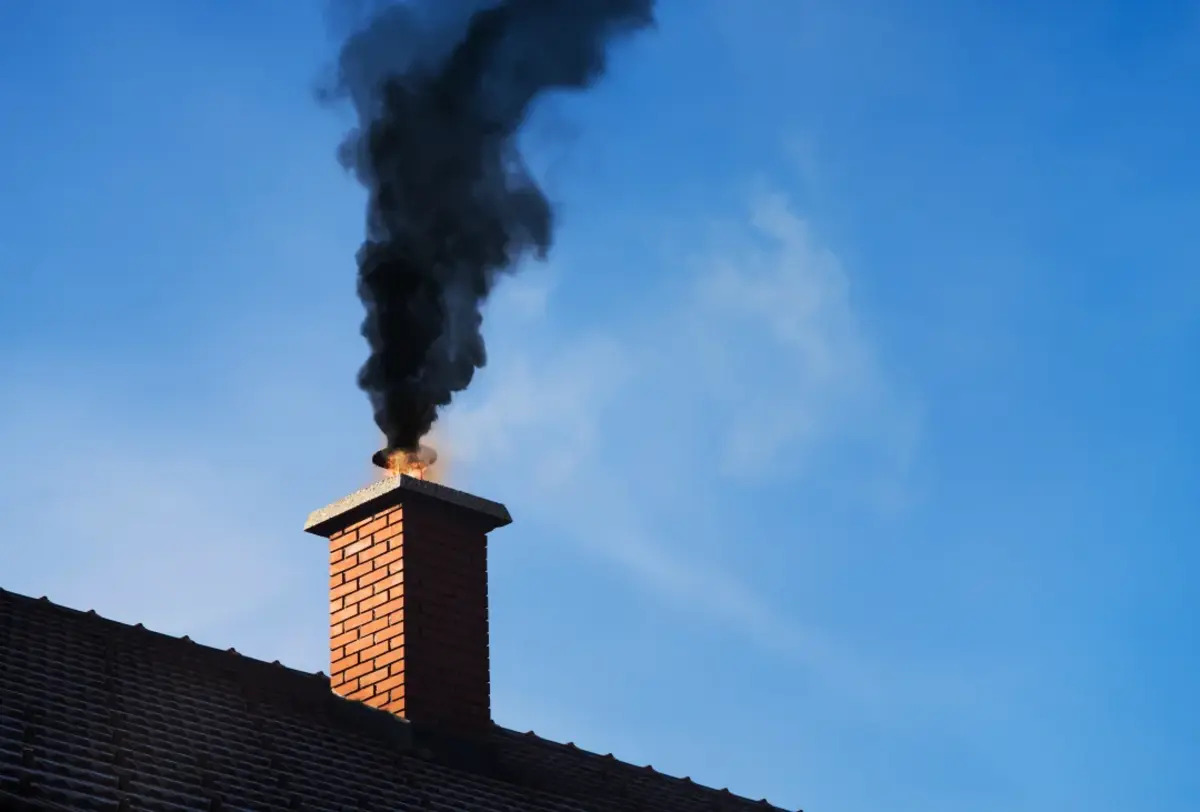
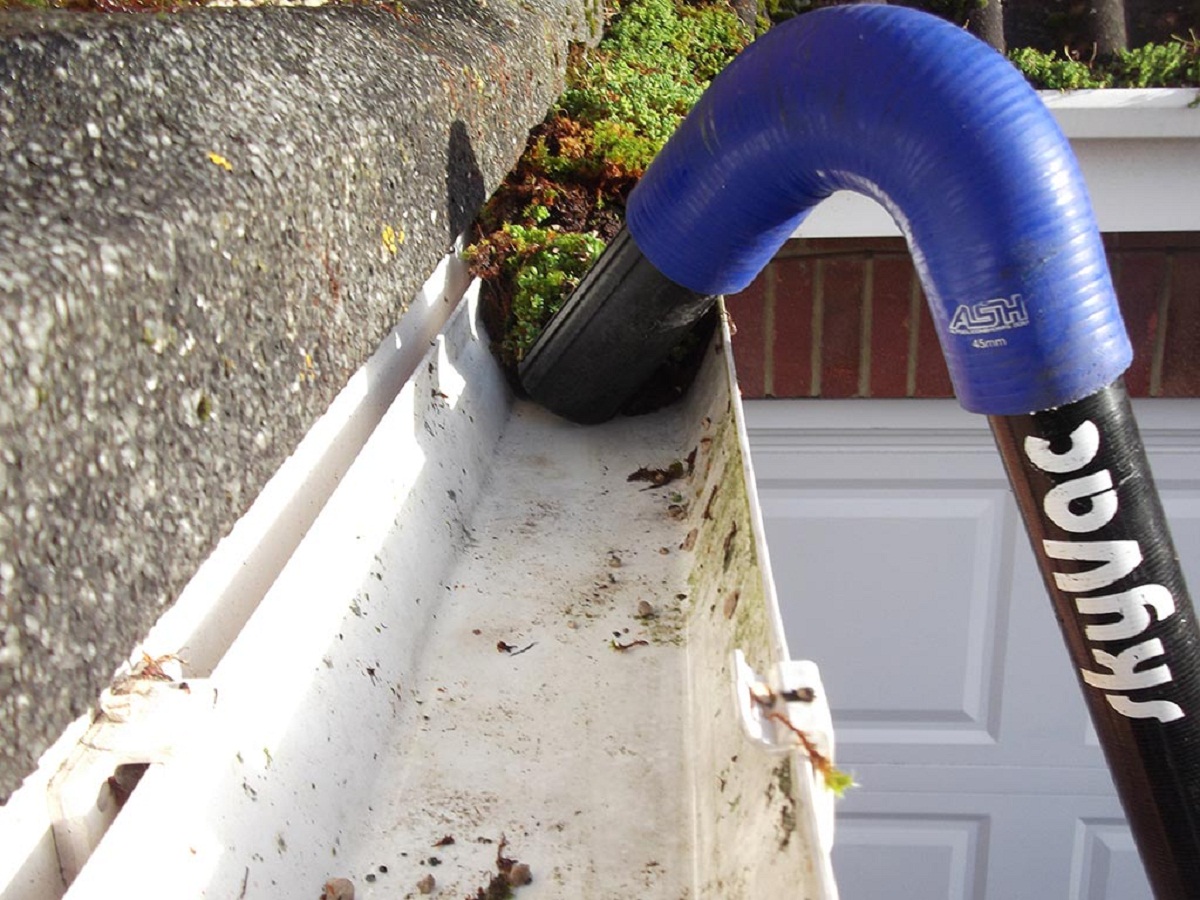
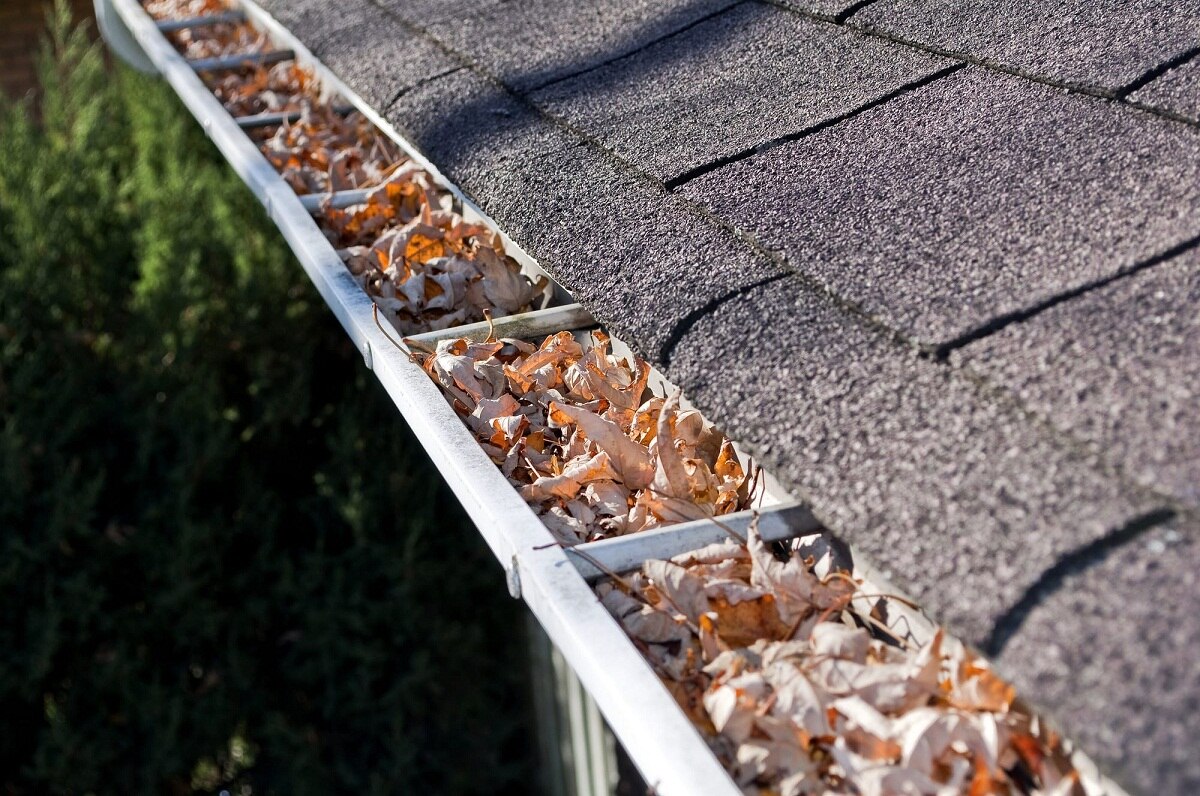


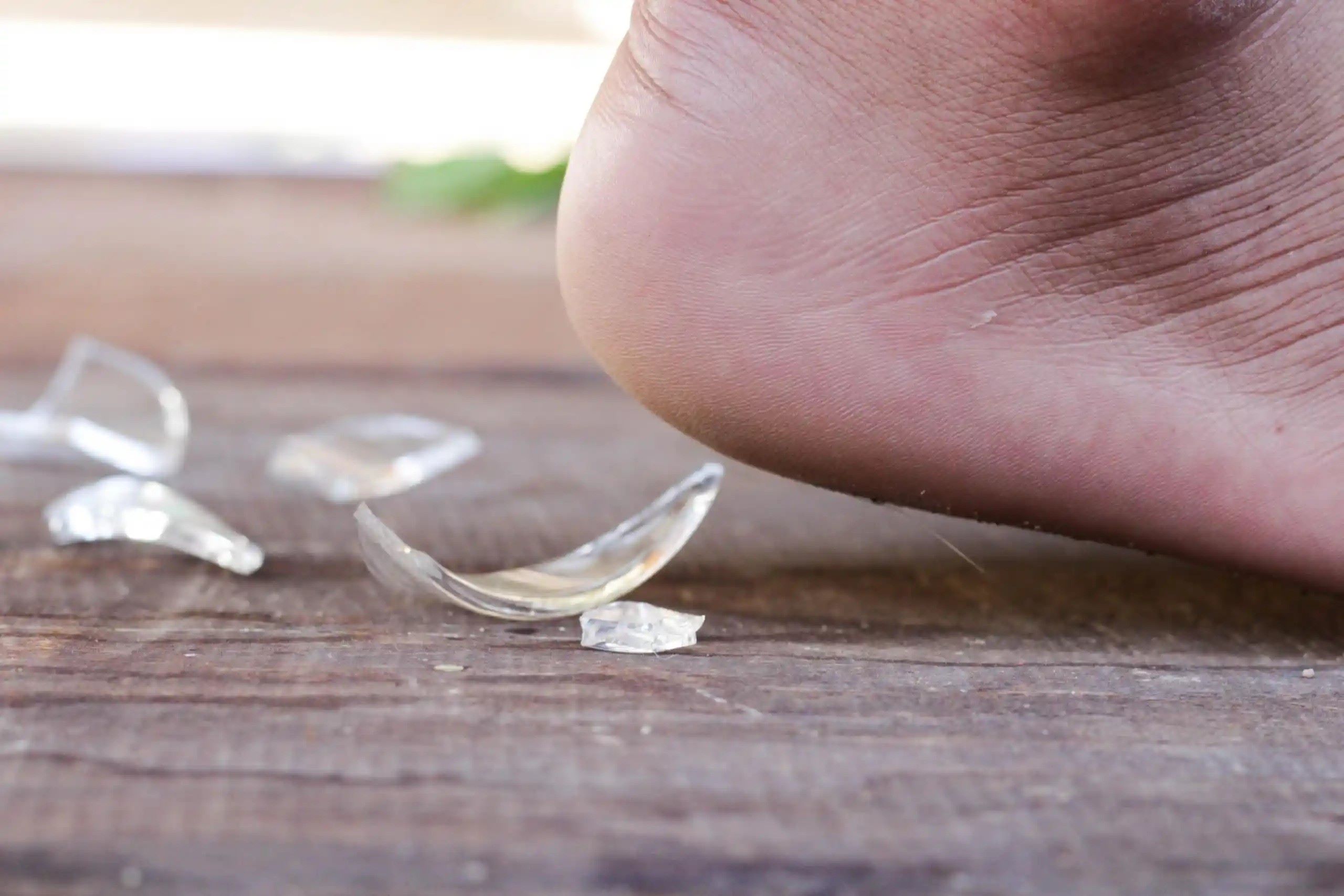





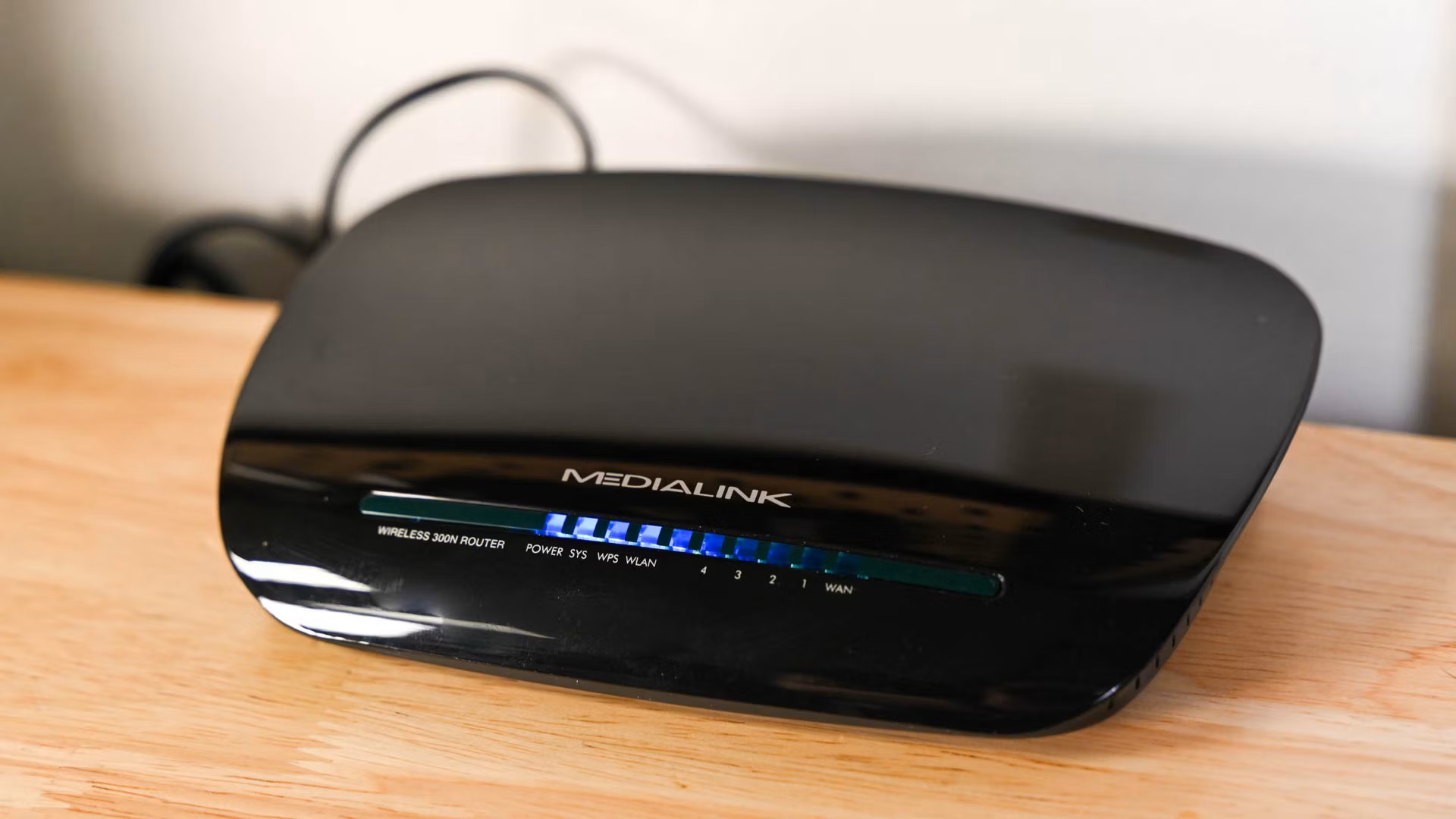
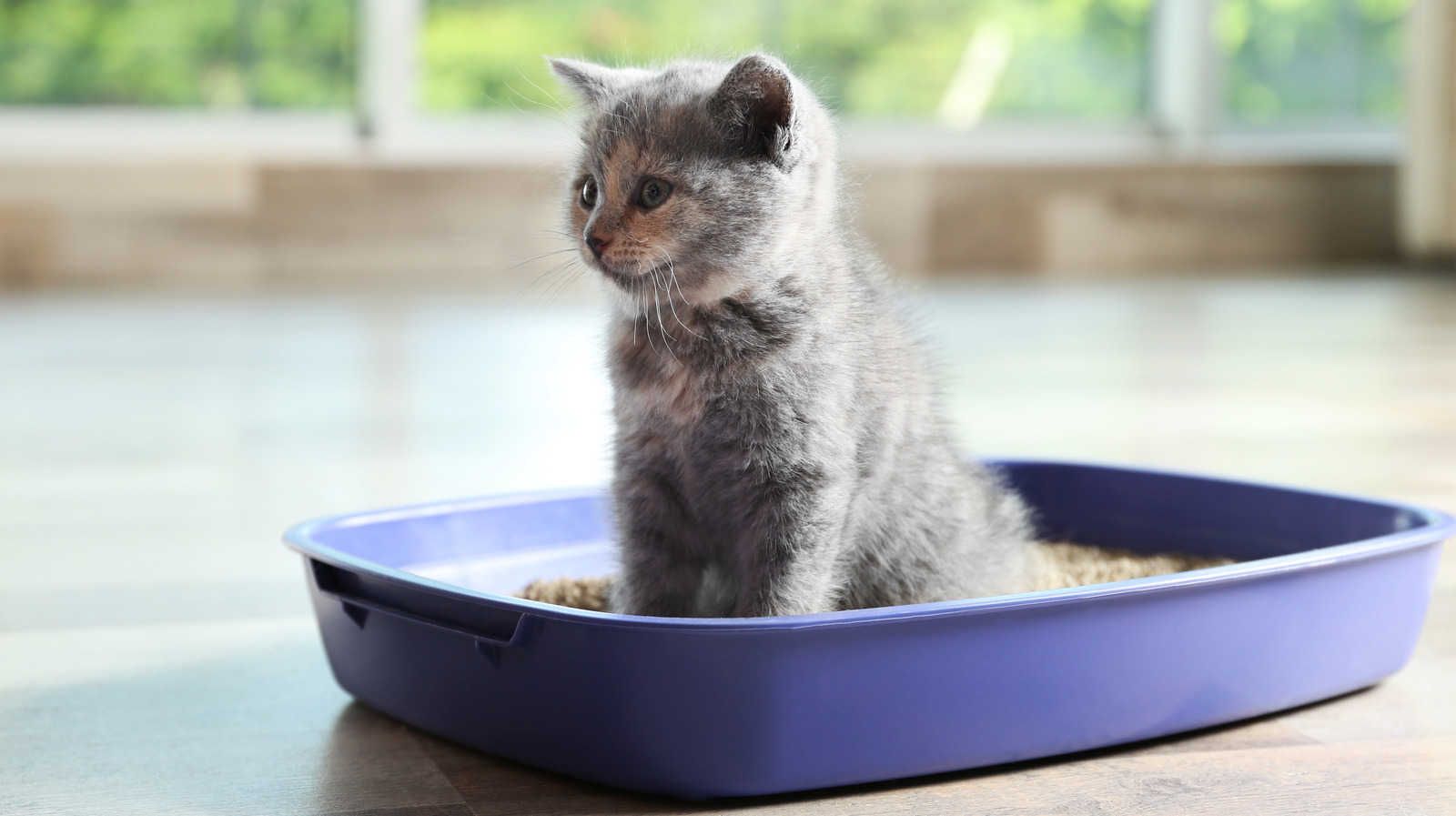

0 thoughts on “What Happens If You Don’t Clean Your Gutters”